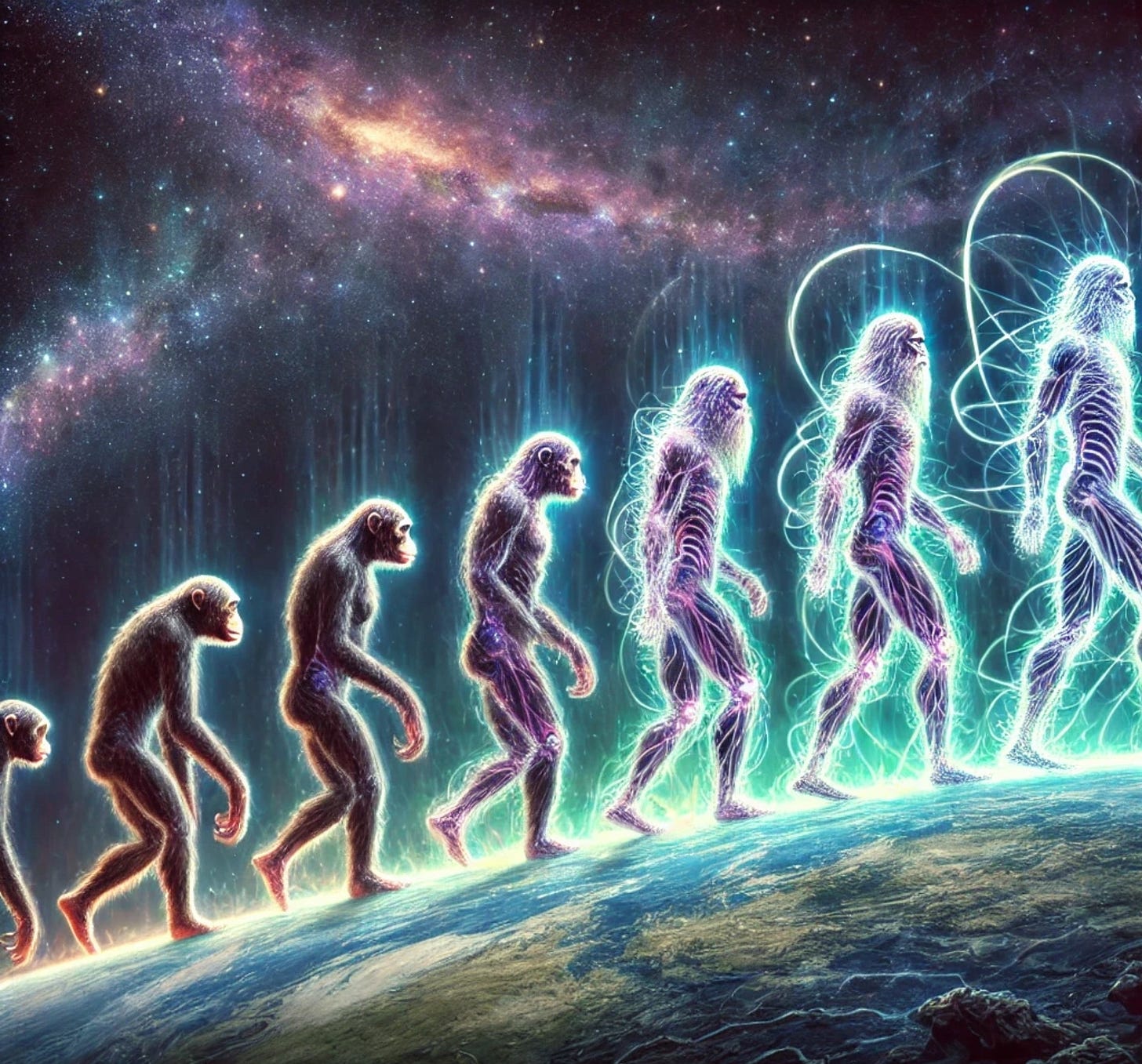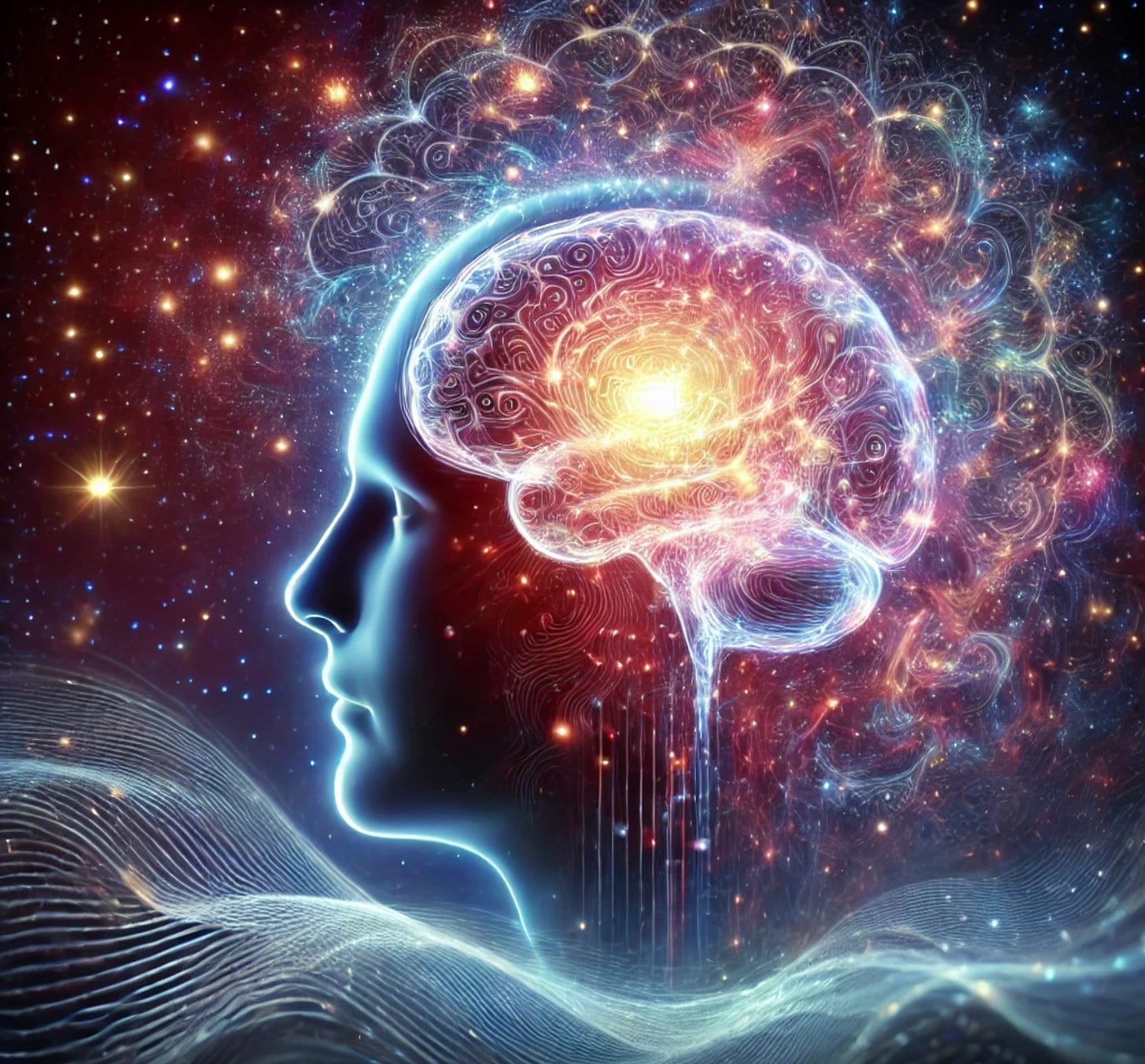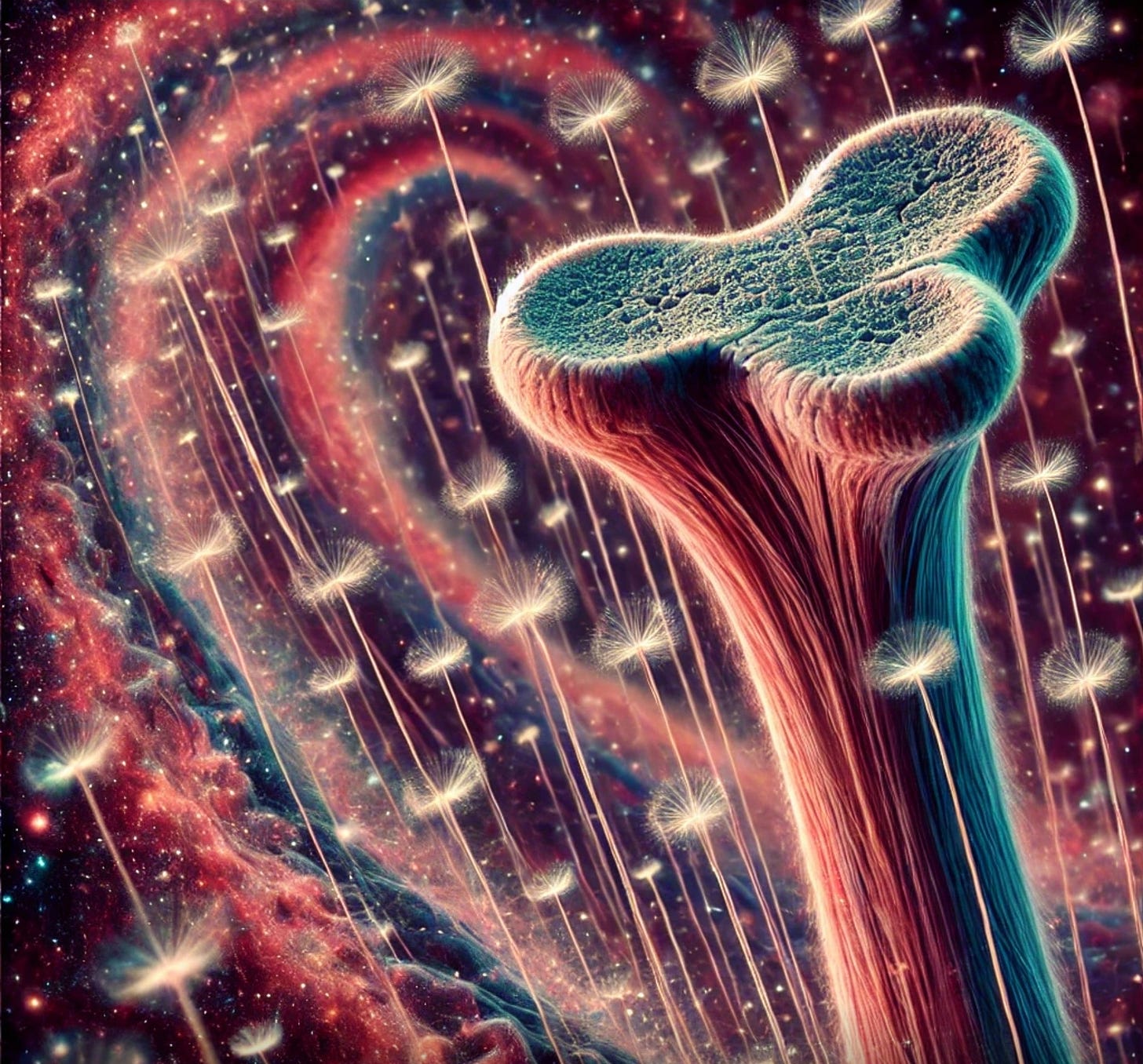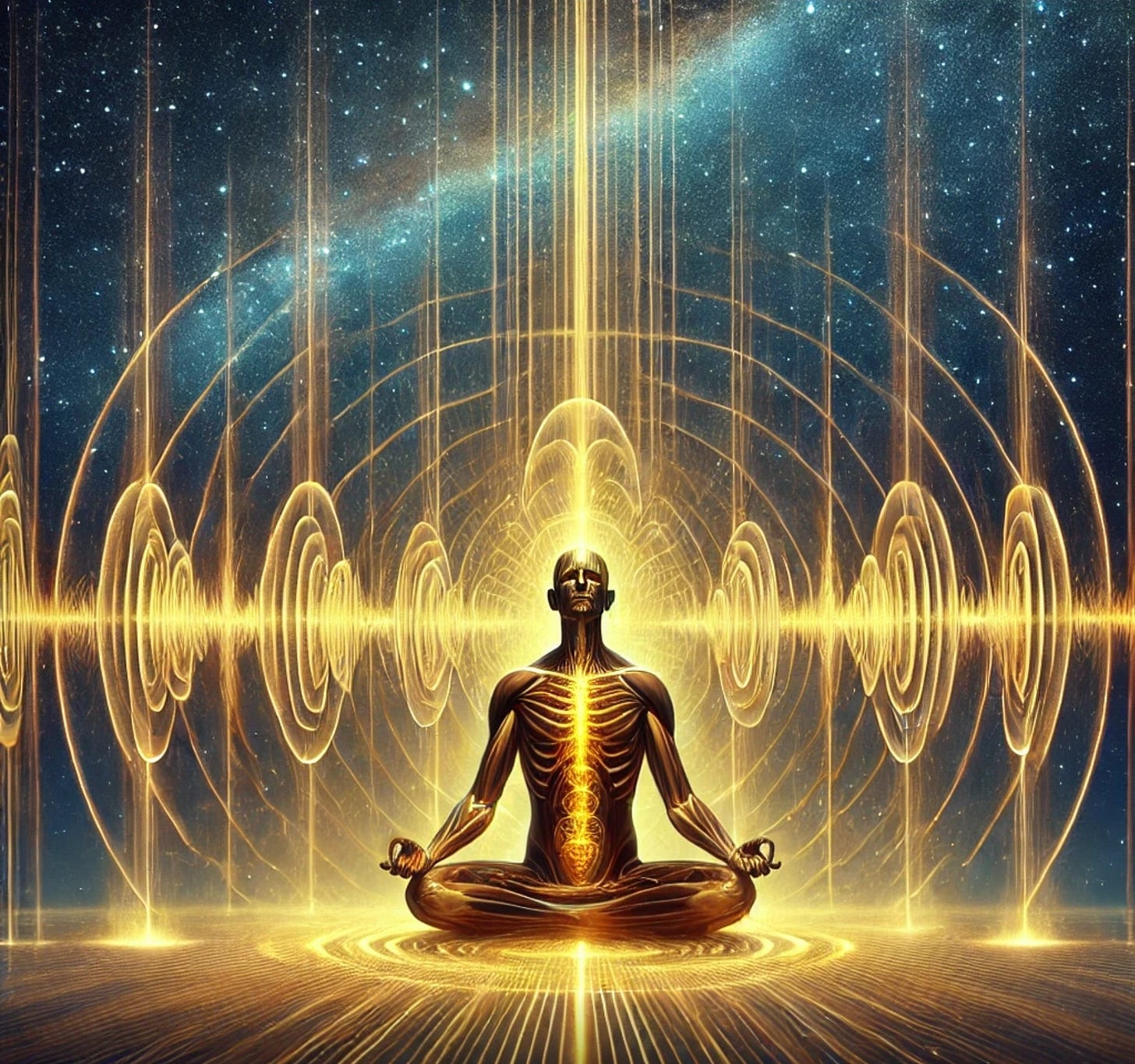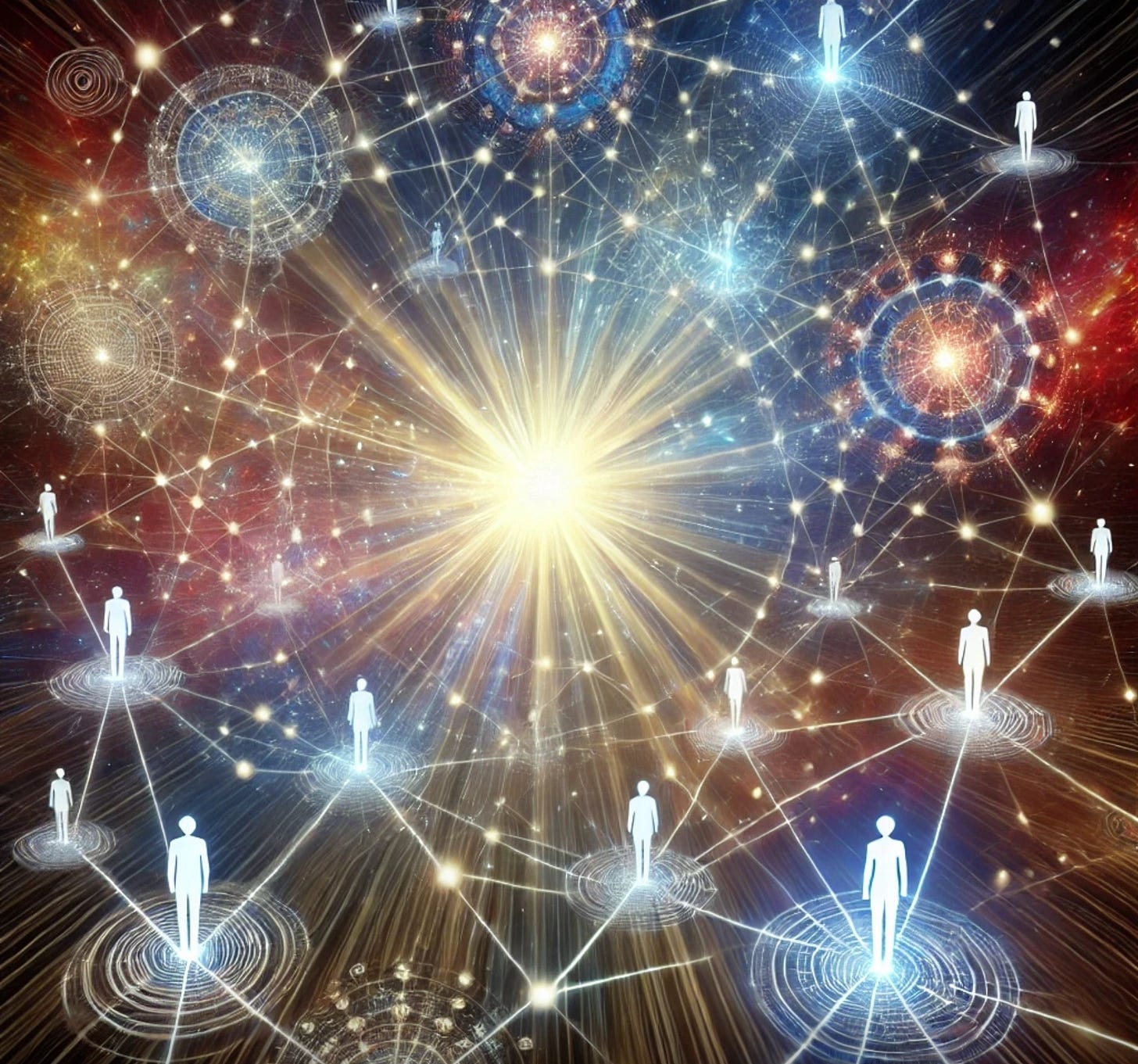When I was a teenager, I had a vision—a wild, bizarre, borderline ridiculous vision. I imagined that our bones were actually antennas, like the rabbit ears on old TVs but, you know, less embarrassing. These bony broadcast receivers, I thought, were picking up cosmic signals beamed across the universe. Picture it: your femur tuning into the intergalactic equivalent of NPR, decoding a signal that was quietly whispering, “Get up off all fours, you lazy primates, and start walking upright!”
Naturally, I assumed I was either a genius ahead of my time or just very sleep-deprived. But as absurd as it sounded, I couldn’t shake the thought that this invisible signal wasn’t just a celestial prank call but a driving force behind human evolution. Over time, this cosmic code influenced our development, urging us to leave the knuckle-dragging days behind, freeing up our hands for more important things, like flipping through TikTok or inventing the espresso machine.
Fast forward a few thousand years (give or take), and wouldn’t you know it, modern physicists are entertaining ideas that sound eerily similar to my teenage epiphany. Except they use fancy terms like “non-local consciousness” and “quantum entanglement” instead of saying “bones are antennas.” Still, the gist is this: consciousness might not be something we generate in our heads, like mental Wi-Fi. Instead, it’s more like Spotify—an external signal we have to tune into. Suddenly, my bone-antenna theory seems less like teenage weirdness and more like cutting-edge metaphysics. Who’s laughing now, science?
The idea that consciousness is something we access rather than possess flips our understanding of humanity on its proverbial noggin. We’ve spent centuries patting ourselves on the back for having this mysterious thing called “awareness,” as if it’s some exclusive, in-house production. But what if it’s not? What if our brains are less like lightbulbs and more like radios, picking up a universal frequency that’s just… out there? Imagine it: our thoughts aren’t ours alone but cosmic pirated broadcasts. Who knew we were all unwitting DJs in the universe’s great mind-radio?
Now, let’s revisit my teenage vision. Back then, I imagined our evolutionary journey as a cosmic scavenger hunt. The signal said, “Stand up straight!” so we evolved into bipeds. Then it said, “Build a fire!” and voilà, barbecue season was born. Along the way, our bones—those trusty antennas—kept fine-tuning the signal, ensuring we stayed on track to becoming the awkwardly self-aware species we are today.
These days, scientists are digging deeper into this concept, and it’s turning out to be surprisingly legit. Quantum physics, for example, is full of mind-boggling phenomena that make my bone theory look downright reasonable. At the quantum level, particles don’t even commit to being particles until someone observes them. It’s like they’re waiting for a cosmic Yelp review before deciding, “Okay, fine, I’ll be an electron.” Some scientists think this means consciousness might play a role in shaping reality itself. So, not only are we tuning into a cosmic signal, but we might also be co-producing the show. We’re not just listeners; we’re collaborators.
But let’s not get too serious here. After all, if consciousness is a signal, then maybe some of us just have lousy reception. You know the type—the ones who seem like they’re always on a different frequency, or worse, stuck on static. Maybe they just need better antennas. Or maybe they’re like those old radios you had to whack a few times to get working.
The implications of this theory are as wild as they are hilarious. If consciousness is universal, what else might be floating around in the cosmic airwaves? Are we picking up signals from other planets? Other dimensions? Or is the universe just one big rerun of intergalactic soap operas? Whatever the case, it’s clear that tuning into this signal isn’t just about survival—it’s about evolving, connecting, and maybe, just maybe, learning to laugh at the absurdity of it all.
So, next time you feel a little disconnected from the universe, don’t blame yourself. Blame your bones for not being better antennas. Or, better yet, take a moment to appreciate the sheer comedy of it all—that we, these upright primates with Wi-Fi brains and antenna skeletons, are out here trying to figure out the meaning of life while the universe quietly hums its cosmic tune.


